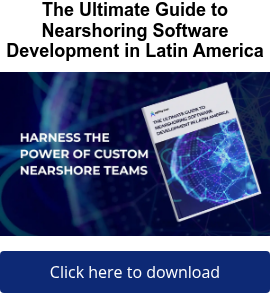During the onboarding process, after we’ve built a custom team of Latin American software developers for a U.S. client, we’re often asked: “How much information should we share with our contract engineers?” It’s a nuanced question, but the right balance can make all the difference in productivity, security, and team engagement.
Based on our experience and building on my last post, Beyond “Resources”: Building Stronger Contract Software Development Teams, here’s a practical guide for what it’s OK not to discuss, what you should discuss but carefully, what you should always discuss, and why sharing matters.
What to Keep Private
While it’s essential to treat your contract team as valued collaborators, some details should remain internal. Safeguard these areas to respect privacy and maintain security:
- Corporate Earnings Details: High-level performance updates can be motivating, but there’s no need to share specifics.
- Employee Compensation Information: Keep details like salaries and bonuses private unless they’re relevant (e.g., if contractors participate in bonus structures).
- Confidential Client Information: Only share what’s essential for the project. Overexposing client data can breach confidentiality agreements.
- Protected Health/Patient Data: For regulated industries, it’s wise to limit production data access even if NDAs and BAAs are signed. Control access levels as you would with internal employees, so that you only give access to those who need production access for deployment or debugging purposes (and who have the proper training).
What to Share Carefully
Some information should be shared with discretion. Providing high-level context here empowers your contractors without exposing too much:
- Corporate Strategy: Offering insights into your company’s direction can give developers a broader purpose. This is true whether someone is a contractor or an employee, and since you want your contract development team to feel empowered and motivated, it’s a good idea to share some of your corporate strategy with them. Share enough to show where their work fits in, but still keep specific financial or highly sensitive details private.
- Product Performance Metrics: Sharing general metrics on user engagement, adoption rates, or feature usage can help developers understand which aspects of the product are most valuable to users. This insight helps inform technical decisions and prioritization, without requiring access to overly detailed or sensitive data.
What to Share Freely
This is where effective collaboration truly happens. Give your contract developers the information they need to make the best technical decisions and deliver a high-impact product:
- Product Strategy & Roadmaps: Help your team see the bigger picture. Understanding the product’s vision allows developers to make thoughtful, strategic choices.
- Client Feedback & Concerns: Don’t just say “users love/hate this feature.” Explain why and how these issues align with user goals. This context fosters meaningful solutions. Even better, your contract development team should participate in any customer feedback sessions that your internal development team would participate in.
- Project Context & Priorities: Let all developers (contract or internal) understand why certain features take precedence. Don’t just tell them “this is more important”, tell them why so that they stay motivated even if you have to prioritize something else over their recommended changes. This allows your tech team to better focus on building what matters most, adding value directly aligned with your company’s goals.
Why Sharing Matters
We’ve seen first-hand how striking the right balance of information-sharing can lead to engaged, motivated outsourced teams that deliver exceptional results.
Your contract engineers are more than just coders; they’re partners in your product’s success. When they understand the “why” behind their work, they can make well-informed decisions that align with your vision.
Want to learn more about how AgilityFeat builds strong teams?
At AgilityFeat, we specialize in building custom teams of highly skilled Latin American software engineers for U.S. companies, making it easy for them to expand their workforce through nearshore development.
Book a free assessment with us today and we’ll build you a nearshore team that delivers!









